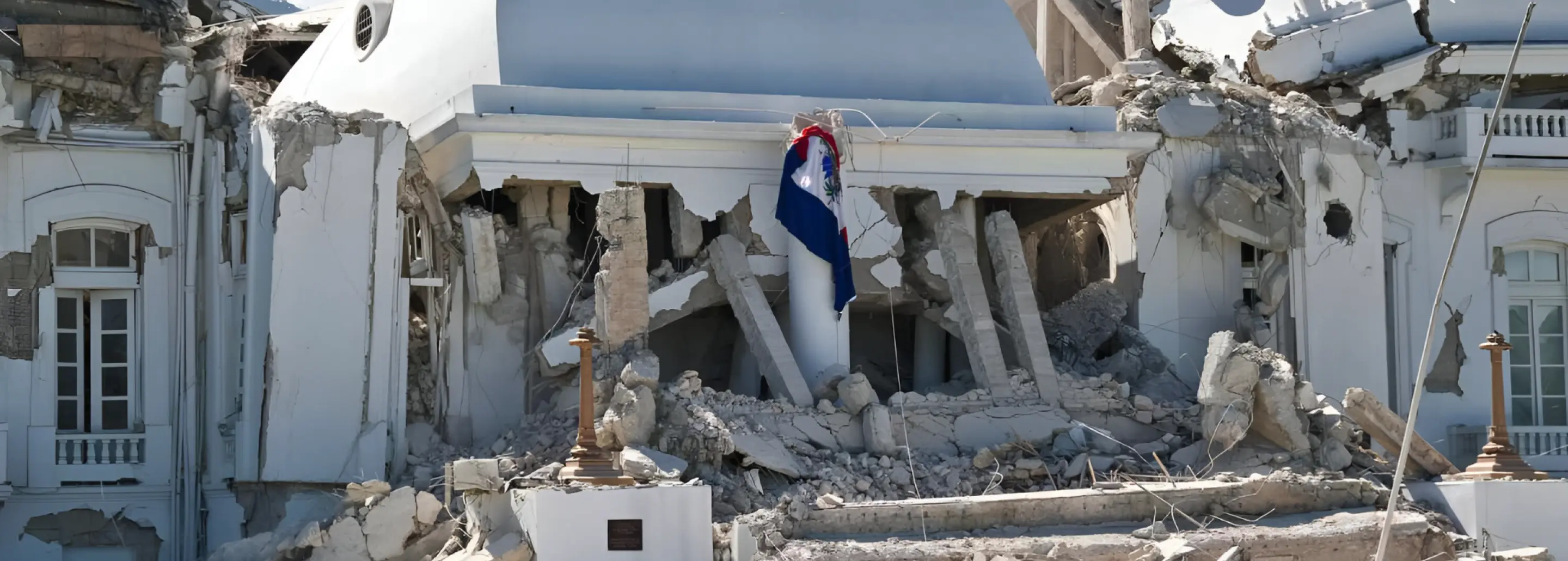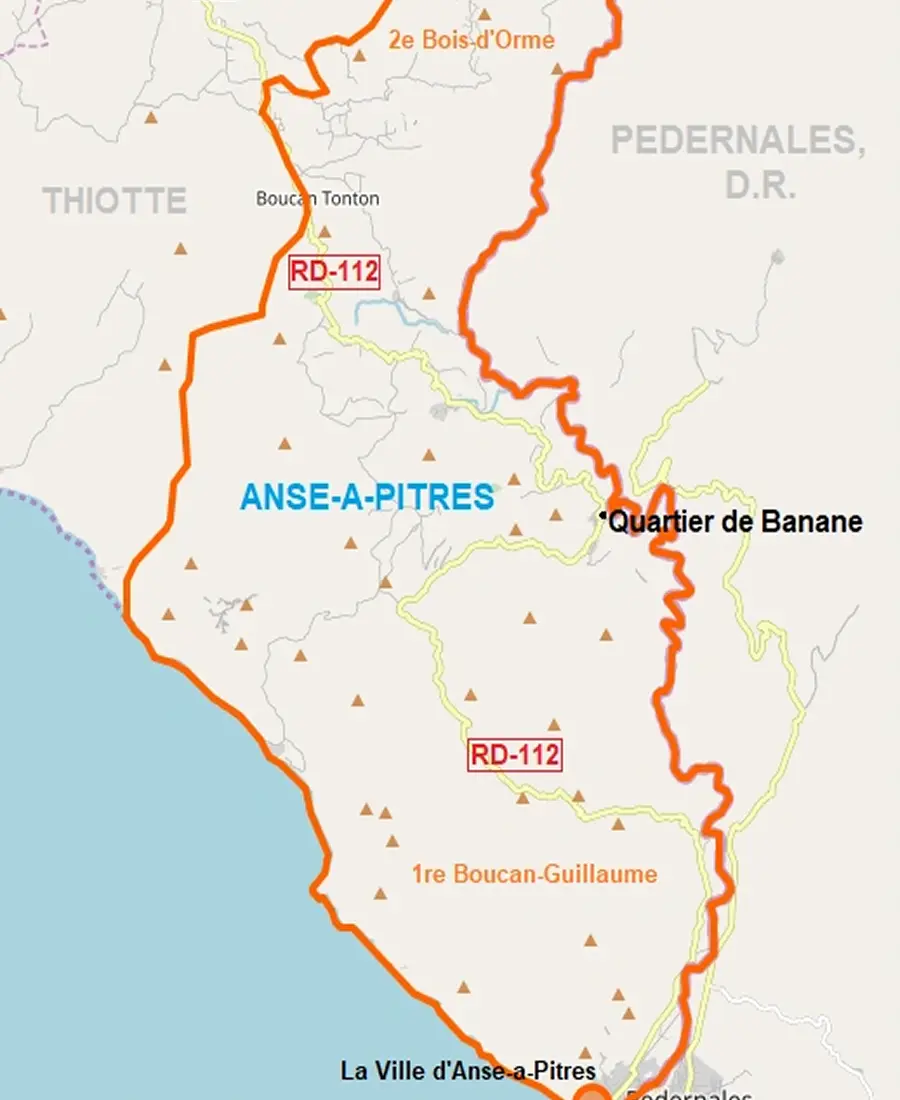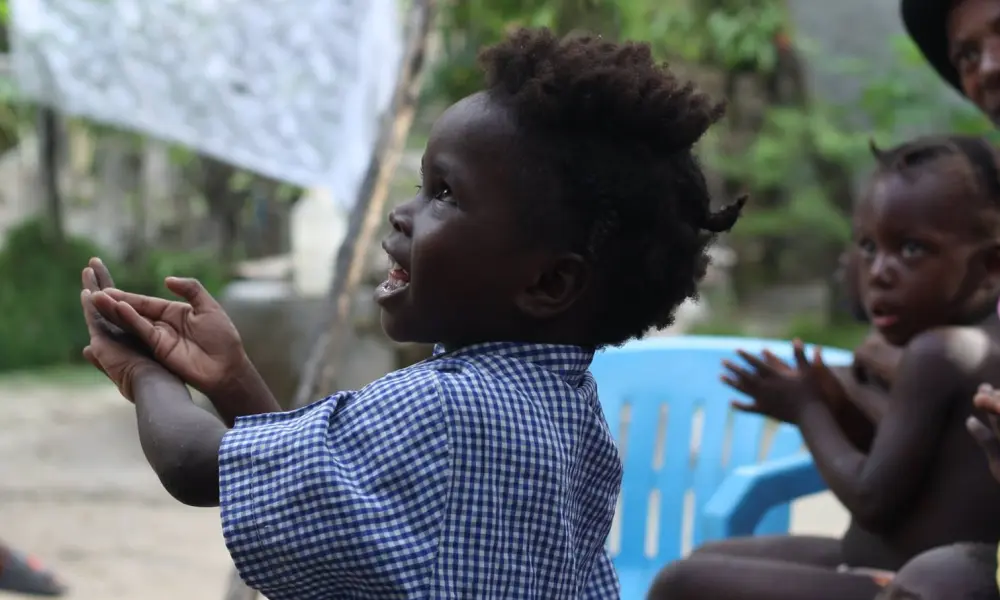
Haiti, a country in permanent crisis
Its population faces one of the world's most severe humanitarian crises.
Extreme poverty, armed group violence and institutional collapse have left more than
one million people internally displaced and much of the population without access to food, clean water and medical care.
Since the devastating 2010 earthquake that left over 200,000 dead and destroyed essential infrastructure, the situation has continued to deteriorate. Today, Haiti faces unprecedented challenges, with an increasingly vulnerable population and an ineffective state response that has not held elections since November 2016.
Key data on the current situation:

More than 1 million Haitians have been displaced due to violence.

Armed gangs control various areas of the country, including the capital, Puerto Príncipe

Access to food and basic supplies is restricted, severely affecting the child population.

The collapse of public services has left entire communities without electricity, clean water, education or transport.
Source: Human Rights Watch 2025
Anse-à-Pitres: where AYMY works every day
In this crisis context, AYMY Foundation focuses its work in Anse-à-Pitres, a coastal community that houses 300,000 people and is located on the border with Pedernales, Dominican Republic. This location has been strategic for securing essential supplies, but recent border restrictions have worsened the situation.
Why this location is key:

It is one of the areas hardest hit by the crisis, with a high concentration of displaced families and children at risk of malnutrition.

For years, the community has depended on trade with Pedernales to access food and medicines.

However, border closures have blocked access to essential resources, leaving thousands of people without immediate aid.

The lack of infrastructure keeps it isolated, which is why it is considered one of the poorest areas in the country.


Supply dependency and the impact of border closures
In September 2023, the Dominican Republic closed all its borders with Haiti, including land, sea and air routes, in response to disputes over water access. Although there was a partial reopening in October 2023 for the entry of essential goods, restrictions continue to severely affect communities like Anse-à-Pitres.
Impact of border closures:
Increased deportation of Haitians
(Adults and children alike) by the Dominican government, carried out through harsh operations that violate the most basic human rights.
Shortage of basic foods
Such as rice, flour and oil, increasing malnutrition.
Lack of medical supplies
Leaving sick people and children without adequate treatment.
Difficulties accessing education
As many children used to cross the border to attend schools in Pedernales.
Total isolation of the community
Limiting any possibility of external humanitarian assistance.
Source: Diario Libre
How AYMY responds to this crisis
In the midst of this unprecedented crisis, AYMY continues to be a safe refuge for children in Anse-à-Pitres.
Since our foundation, we have achieved
Providing a safe home
To more than 70 children in situations of extreme vulnerability, and schooling to over 160 children since our founding.
Guaranteeing education
To children who would otherwise be left out of the education system.
Providing literacy to more than 100 children
Without school access thanks to young people from AYMY home who travel to the most vulnerable areas of the region to teach children who cannot reach our school.
Distributing food and medical care
Thanks to the help of collaborators and donors.
Establishing self-reliance programmes
Ssuch as AYMY Bakery, which generates employment and feeds the community.
Installing a filtered and chlorinated water tap
Which supplies not only AYMY but also neighbouring communities. This tap will soon be complemented with a drinking water well.
Creating nest homes
To prevent babies and minors from being left alone while their mothers are forced to go to work.
Help us continue building opportunities
At AYMY we don't just welcome children; we also give them tools to grow with independence and strengthen their community. You can be part of this change.
